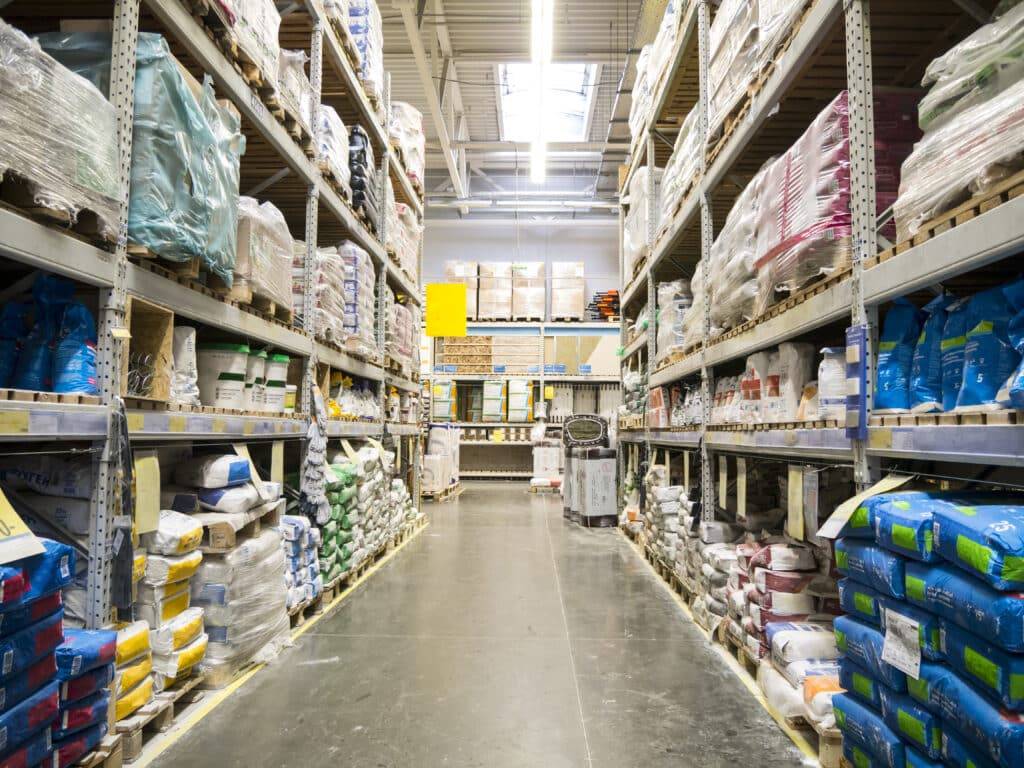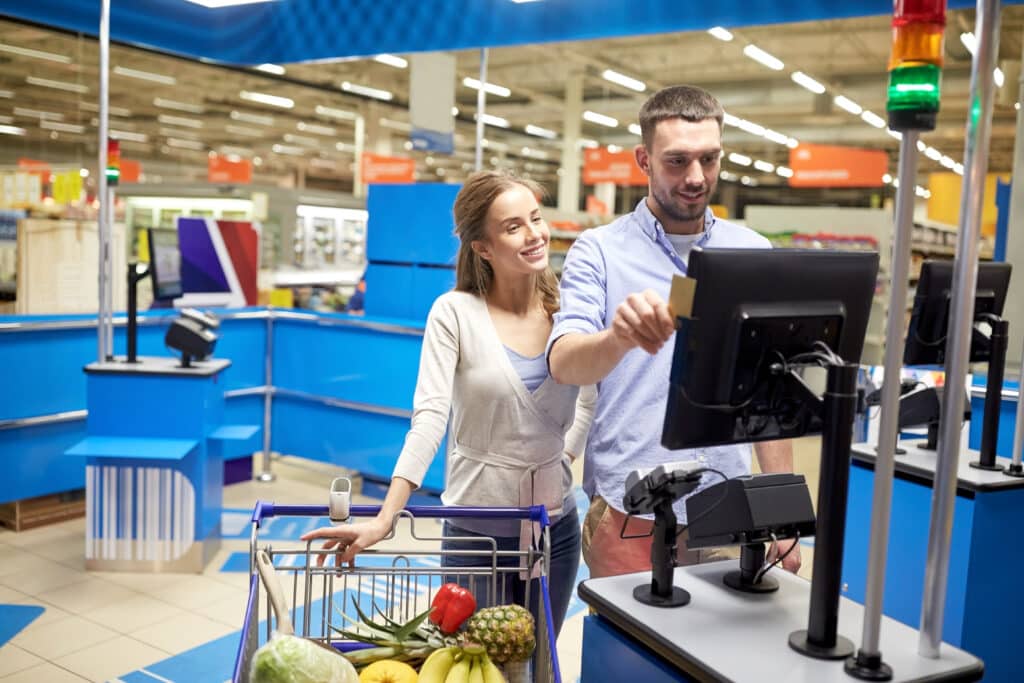In the ever-evolving world of retail, efficiency and streamlined operations are paramount to success. Enter the revolutionary Wholesale POS system — a game-changer that promises to transform the way businesses manage their inventory, sales, and customer relationships. This cutting-edge technology has been making waves in the industry with its advanced features and seamless integration capabilities. From small businesses to large enterprises, retailers are eagerly embracing this transformative tool that not only simplifies daily operations but also enhances overall profitability. But what exactly is a Wholesale POS system, and how does it differ from traditional point-of-sale systems? Let’s delve into this groundbreaking innovation and explore how it is reshaping the retail landscape as we know it.
The rise of wholesale POS systems
The rise of wholesale POS systems is revolutionizing the retail industry in more ways than one. Gone are the days of traditional cash registers and handwritten receipts. These new systems offer a range of features that streamline operations, enhance customer experience, and boost sales.

Retailers can use real-time updates on stock levels to avoid stocking too much or too little, which makes customers happier and increases sales. These systems also have analytics tools that give retailers useful information about how customers behave, so they can make decisions about what products to sell and how much to charge. Wholesale POSs are also making it easier for customers to shop both online and in physical stores. This means customers can browse products online, buy them in-store, or even use their mobile devices. This makes shopping more convenient for customers and helps retailers learn more about what their customers like to buy.
Wholesale POS systems are changing retail by improving inventory management, offering omnichannel experiences for customers, and providing businesses with real-time data analysis. The future of retail lies within these cutting-edge technologies that optimize operations while aligning with ever-changing consumer demands.
What is a wholesale POS
A wholesale POS system is a game-changer for retailers in the wholesale industry. Wholesale POS systems are different from traditional ones because they are made for wholesalers. They make sales and inventory management easier by allowing bulk ordering and offering different pricing options.
One key feature of a wholesale POS is its ability to handle large order volumes seamlessly. Automated systems can process thousands of orders at once, eliminating the need for wholesalers to manually input each purchase order. This significantly reduces human error and allows businesses to handle higher transaction volumes without compromising efficiency.
Additionally, a wholesale POS system provides real-time inventory tracking and reporting capabilities. Wholesalers can easily keep track of stock levels across multiple warehouses or locations. This enhanced visibility enables better inventory management decisions, ensures accuracy in fulfilling orders, and helps avoid costly stock-outs or overstock situations.
In conclusion, a wholesale POS system goes beyond a typical point-of-sale solution to address the specific challenges faced by wholesalers. Using this technology can help wholesalers compete in the market by improving efficiency and providing a great customer experience. It streamlines operations, handles large orders, and manages inventory accurately.
Benefits of using a wholesale POS system
One of the biggest benefits of using a wholesale POS is the streamlined inventory management it provides. A wholesale POS system helps you track your inventory in real-time. This prevents stock shortages and overordering. It saves time, reduces mistakes, and improves your supply chain by showing you which products are selling and need restocking.
Another advantage of using a wholesale POS system is the ability to generate detailed reports and analytics. These reports can provide valuable information on sales patterns, customer behavior, and overall store performance. With this data, you can make smart business decisions like changing prices, finding popular items, or focusing on certain customers for marketing. By harnessing the power of data analytics, businesses can gain a competitive edge in today’s rapidly changing retail landscape.
A wholesale POS makes things easier and faster for both staff and customers. Staff can quickly process transactions using barcode scanning and touchscreen interfaces, and they can easily access the latest product information. Customers also benefit from shorter wait times at checkout because transactions are processed faster.
Key features to look for in a wholesale POS
1. When choosing a wholesale POS system, it’s important to find one that can grow and change with your business. Look for a system that can be customized to fit your needs and offers different pricing options. It should also allow you to add or remove features and customize workflows and reports.
2. Inventory Management Capabilities: Efficient inventory management is crucial in wholesale operations, as it directly impacts profitability and customer satisfaction. When picking a wholesale POS system, focus on one that has strong inventory management features like tracking in real-time, automatic alerts for restocking, batch processing for orders and invoices, barcode scanning integration, and managing a central product catalog for multiple sales channels. Having these features at your fingertips will not only streamline your business processes but also minimize errors and maximize efficiency.
3. To improve your retail business as a wholesaler, find a POS system that works well with other important tools like CRM software, accounting systems, and eCommerce platforms like Amazon or eBay. Integration saves time by avoiding duplicate data entry and ensures that information is accurate across different systems. Syncing sales data with accounting software automates financial reporting, and integrating customer data from CRM software into the POS system helps you provide personalized experiences and build customer loyalty.
Case studies: Success stories of retailers using wholesale POS
Long gone are the days of manual inventory management and cumbersome point-of-sale (POS) systems for retailers. The advent of wholesale POS systems has revolutionized the retail sector, offering seamless operations and maximizing profitability. Several success stories have emerged from retailers who have implemented these systems, showcasing the transformative power they possess.

One such success story comes from a local boutique clothing store that struggled with outdated inventory practices. By implementing a wholesale POS, they were able to automate their inventory management and streamline processes. This allowed them to accurately track stock levels, avoid overstocking or understocking, and ultimately reduce costs associated with carrying excess inventory. As a result, their profits increased significantly within just a few months of implementation.
By using a centralized wholesale POS, they combined data from all their locations into one platform. This gave them useful information about what customers like and how they buy things in different areas. With this knowledge, they made better choices about what to sell and how to advertise at each location. This made customers happier and increased sales. In summary, these examples show how retailers are using wholesale POS systems to change their businesses.
The future of retail with wholesale POS
Wholesale POS systems are poised to revolutionize the future of retail in more ways than one. Wholesale POS systems simplify the wholesale process and provide benefits for retailers and customers. They have features like real-time inventory tracking, order management, and analytics capabilities. Retailers can optimize their operations and provide great customer experiences.
One key aspect that sets wholesale POS systems apart is their ability to integrate with various e-commerce platforms. This enables retailers to seamlessly manage both their brick-and-mortar and online sales channels from a single system. These systems help retailers keep track of inventory in all channels, making sure they don’t sell too much or run out of stock. Retailers can also use this integration to create personalized shopping experiences that make customers happy and buy more.
Furthermore, the future of retail with wholesale POS systems lies in their potential for data-driven decision making. Retailers can use real-time analytics and reporting from these systems to understand customer behavior, purchases, and business performance. This helps them make informed decisions about products, prices, and marketing. By doing this, retailers can keep up with market trends and meet changing consumer needs. In summary, wholesale POS systems have a promising future in retail.
Conclusion: The game-changing potential of wholesale POS
Wholesale POS are changing the retail industry by improving how businesses handle inventory, track sales, and provide great customer experiences. These systems offer more than just a basic point of sale function. They have powerful features that make operations smoother and more efficient. With advanced reporting, real-time analytics, and automated inventory management, wholesale POS systems help retailers make smart decisions based on data to grow their business.

One key advantage of wholesale POS systems is their ability to integrate seamlessly with other business software and platforms. Retailers can connect and share data across different parts of their business, like sales, stock levels, and customer information. Wholesale POS systems put all this information in one place, which eliminates the need for manual data entry and ensures accuracy. This integration also helps retailers connect with suppliers and distributors more easily. As a result, supply chain management improves and orders are fulfilled faster, making it easier for retailers to keep up with consumer demands in a competitive market.
Wholesale POS systems also offer a range of innovative features that enhance customer engagement both online and offline. Retailers can use these systems to create personalized experiences for shoppers. They can capture customer preferences and use them to provide targeted offers and anticipate future needs. This helps build long-term customer relationships.

